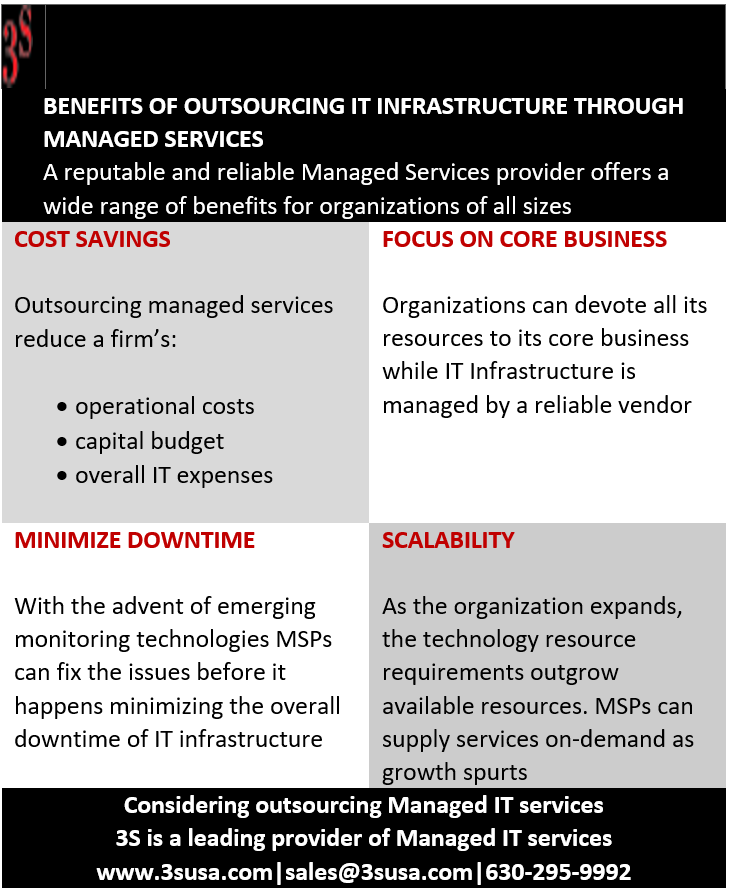Managed Services Are Dead!
Don’t waste money on something that doesn’t work. Traditional IT managed services with focus on running enterprise IT environments remotely are dead. Hence, tech CEOs and technology product managers at managed service providers (MSPs) can no longer simply support clients with traditional IT managed services nor simple cloud managed services. Instead, service providers must transform the managed services approach to digital business infrastructure initiatives focusing on business outcomes. The service providers are contractually engaged by clients with the objective of managing, operating and continually optimizing the necessary infrastructure that supports digital business solutions and delivers digital business outcomes.
The right service provider who manages digital infrastructure should add business value, improve customer satisfaction and increase quality through digital business operations. Hence, while digital managed services are complementary to traditional IT operations, its tied to specific business outcomes to exclusively support technologies that are used to operate a digital business solution.
The Cloud Managed Service Provider (MSP) you choose can make or break your corporate cloud strategy and not all Managed Service Providers are alike. Before you make a choice, be sure you understand:
- Experience in your industry/vertical
- Level of technical expertise
- Migration strategies
- Exposure to Quality Assurance Principles
Cloud Managed Services
Developing and deploying applications on the cloud requires careful planning and assessment for security, capacity and reliability. Integrating the newly developed cloud application with the on-premise applications is a complex challenge the Enterprises are facing today. Cloud adoption across an Enterprise is a major undertaking. Let our team of experts you’re your Enterprise-wide launch a successful initiative so you can reap the benefits quickly and help you stay competitive. We bring the best technology and practices for your cloud adaption.
Our offerings in Cloud Computing
Whether you need a cloud application; accessed via mobile devices, desktop app or a browser; our cloud application architects and developers will help steer your cloud application development initiatives in the right direction. We can help you in selecting the right type of cloud viz., public, private or hybrid. We also help our customers choose cloud platforms such as Azure, Amazon, Force.com, or Google App Engine after evaluating your needs.
Our cloud development expertise includes but not limited to:
- Cloud Adaption
- Cloud Application Migration
- Cloud Integration
- Open Source based Cloud Solutions
- Amazon Web Services (AWS) Development
- Microsoft Azure
- Google Cloud Integration
Infrastructure Services
We’ve years of experience working with traditional and DevOps enabled organizations. Our team understands both cultures and it knows what it takes to transition from one model to another. Our team handled several World-class engagements helping organizations stay more competitive by transitioning their Infrastructure. Our Infrastructure team handled:
- Remote DevOPS Support
- VMware Stack
- RackSpace
- Heroku
- Amazon OpsWorks
- Amazon ElasticBeanstalk
- Docker
- Vagrant
- ServiceNow
- Release Management and Continuous Integration
- Back and Recovery
- Network Security
- Storage Server Management
- Network Monitoring
3S advantage
Technology changes at a lightning pace A qualified and reliable managed services provider offers a wide range of benefits to organizations of all sizes. We’ve outlined four of the key benefits businesses are experiencing by outsourcing your IT managed services to 3S

1. Cost Effectiveness
One of the greatest incentives to partner with a managed service provider is its extreme cost-effectiveness. With managed services, organizations can:
- Reduce operational costs
- Conserve capital budget
- Lower overall IT expenses
The majority of MSPs operate on a subscription-based model where clients pay annual or monthly fees for services, allowing them to foresee if it is feasible to remain within their budget. Clients receive a service level agreement (SLA) that’s customized to their company’s precise needs, allowing them to efficiently manage hardware and software, increase productivity and reduce the total cost of application ownership. MSP clients typically pay for the services they require, rather than for expensive packages with extraneous services they don’t need.
2. Focus on Core Business
Outsourcing Infrastructure Services can help a business stay focused on revenue-generating activities and innovation. The Managed IT Services Provider can handle mundane tasks while the firm can focus on their core business more efficiently without the distraction of technical troubleshooting.
To allow both technical and non-technical employees to manage their time better and improve work efficiency, put the responsibility of IT management in the hands of a dedicated team of experts.
3. Minimize Downtime
when you hire a reliable managed service provider (MSP) to monitor your systems 24/7, the MSP can discover and fix a problem before it even hits your system. The tools and techniques available in the current cloud management arena enable the Managed Service Provider to proactively address potential issues before it impacts the business operations. Businesses can focus on business while your MSP focus on the technology around the business functions.
We provide the most cost-effective way to migrate your applications over to the cloud. Our team of experts have extensive experience migrating several Enterprise-wide cloud migrations and built solutions that scale to meet fortune customers’ global needs.
4. Scalability
Given the rate of technological advancements and the fact that businesses need to scale resources up or down on demand, scalability is vital to supporting business growth and development. As a company expands, it should anticipate unexpected hurdles, one being when technology requirements outgrow available resources. MSPs will supply support and services as needed to handle growth spurts or emerging IT problems.
Because scalable solutions can accommodate rapid changes, they also help firms stay productive, improve system availability and eliminate detrimental downtime. Additionally, MSPs will address their clients’ technical pain points and remain responsive to their needs, both short-term and long-term. High-quality MSPs proactively explore and identify enhancements for improvement in support of the client’s key business objectives.
